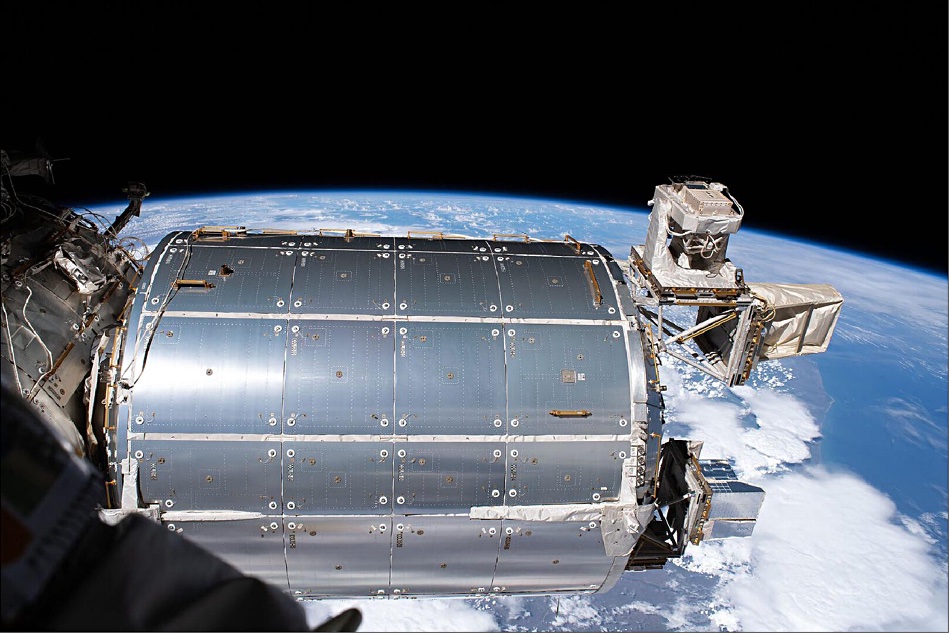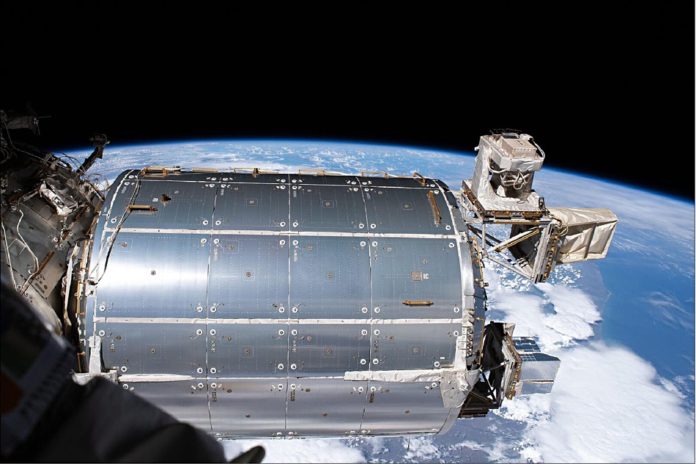Two astronauts will walk in space today to upgrade the International Space Station’s datacomms. Their efforts will mean that data collected in science experiments conducted aboard the ISS will no longer be sent to Earth via hard drives carried by returning astronauts.
The space walkers are expected to take six hours to install the ColKa (Columbus Ka-band), a fridge-sized terminal funded by the UK Space Agency and built by MDA UK.
The ISS Columbus module, launched in 2008, currently has lousy data comms to ground stations on Earth. Hence the physical transfer of data by hard drives. However, arrival is contingent on the return schedule of the astronaut, which may result in many weeks’ delay.

With the new set-up, results are delivered to scientists a day or two after the data is recorded. Data transmission is asynchronously bi-directional. ColKa promises speeds of up to 50 Mbit/s in downlink and up to 2 Mbit/s in uplink.
This will allow high data volume downlink, including video streaming. Speed is limited by the ISS-Earth comms infrastructure components. The terminal itself is capable of speeds of up to 400 Mbit/s downlink and 50 Mbit/s uplink.
ColKa will send signals from the Station, which orbits at an altitude of 400km above Earth, even further into space, where they will be picked up by EDRS satellites in geostationary orbit 36,000 km above the surface. From there the data is transmitted data to a ground station at Harwell Campus, Oxfordshire. Then the signals are transferred to the Columbus Control Centre and user centres across Europe.








